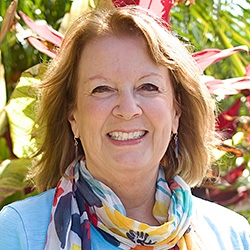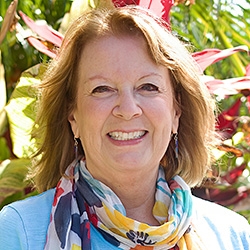

Search Results: truth
-
Whether its pandemics, climate change, damage to the environment or other massive challenges that humanity faces, what are we to do if we can't agree on even the most basic information and knowledge? From empathic understanding we can focus on shared, universal human needs (where there is no conflict or disagreement) underlying our perceptions, and feelings. Then we can see if there are ways we can agree on to meet those needs.
-
When avoidance coping or positive thinking sidesteps challenges, internal and external injustice and unrest also rises as we sidestep our values and integrity. It leaves us in sadness and distress. What's unacknowledged impacts ourselves and others undesirably. To live nonviolently we need to be in touch with what's real. With resonance we can more likely be with what's true, and trust our resilience and inner alignment.
-
One thing that makes empathic understanding difficult yet valuable is that it can be humbling. If I really open myself to hearing and understanding, while trusting my inner strength of self-knowing, I may be changed by what I hear. My core beliefs or understanding might change and grow. This openness could be key to transforming the energy of conflict into new possibilities for greater connection, creativity, and well-being.
-
Explore what blocks us from speaking truth and how honesty builds trust and growth.
-
-
Unhook from a reactive dynamic, by staying with your needs and requests, and release attachment to outcome. Start by shifting your attention from the other person to get clear on what's true for you. Read on for strategies to transform reactivity, possible boundary setting behaviors, typical signs of escalation, and more.
-
Along with it’s potential for helping others calm their emotions and feel deeply understood, the Nonviolent Communication process of empathetic listening can help someone increase their capacity for finding their own truth.
-
Trainer Tip: Mary offers a perspective on how to know if our need for honesty is being met.
-
There's a growing trend to elevate feelings and personal truths (aka MY truth) to the point of being unassailable "facts". If I feel unsafe, then it must be because of you. As valid as a person’s inner world is, we risk overlooking what's beyond our own views, such as larger forces around us that continue to underwrite exploitation, violence, “othering”, etc. Instead, describe specific words and actions that a camera would record.
-
How is trust best supported? Do you know what you do to contribute to making it easier or more difficult for others to express the truth (even in the most mundane moments)? Smaller requests can also built trust over time if they're rooted in the present moment, and are specific enough. Learn more about building trust...
-
- Discover how to translate NVC into your natural, authentic voice
- Embody your values through tone, presence, and nervous system attunement
- Learn the art of repair and returning to love when things go off track
- Finally, be able to drop the script and trust your internal compass in the moment!
-
Embrace nonviolence with courage and compassion as you learn to stand for truth in everyday life.
-
Dear Friends,
Have you ever found yourself in a situation where you could not see a good option, no matter how hard you looked? Or have you ever done something you felt ashamed or embarrassed about and struggled to release the shame?
Recently, I was telling a childhood story to some friends. It had us all laughing (a very welcome moment!), and it also got me reflecting about honesty and authenticity. Here’s the story:
-
Discover your unique role in creating a world where everyone’s needs matter.
-
Trainer Tip: When you suspect someone is lying, consider how it may be less important what the truth is. Instead, notice whether your need for trust is met. Without blame, nor labelling. you can make specific requests to meet your needs, while also respecting the other person’s needs. Read on for more.
-
Gain practical skills to navigate organizational differences and foster collaboration.
-
Grief is often confused with anguish. Anguish is a painful feeling that comes along with deep resistance to an experience or truth. Grief that leads to healing is an expansive state. It is a willingness to be with an experience and truth. If you're not resisting grief, then it's a neutral-to-pleasant experience. Pleasant sensations can include a sense of space and relief as something is integrated and tense holding releases.
-
Balance self-passion and compassion with NVC tools to stay empowered and honor your own needs.
-
Create intimacy with transparency, empathy, and trust—Kelly blends humor, music, and exercises.
-
Enjoy listening to Miki make the distinction between leadership as a position and leadership as an orientation to life. The theme: when is it time to actively step into your vision?! Check it out.

Quick Links
Subscription Preferences
Stay In Touch!
Looking for ways to keep up with NVC Academy news, get special offers, free resources, or words of inspiration? Here are five ways to stay engaged:



















